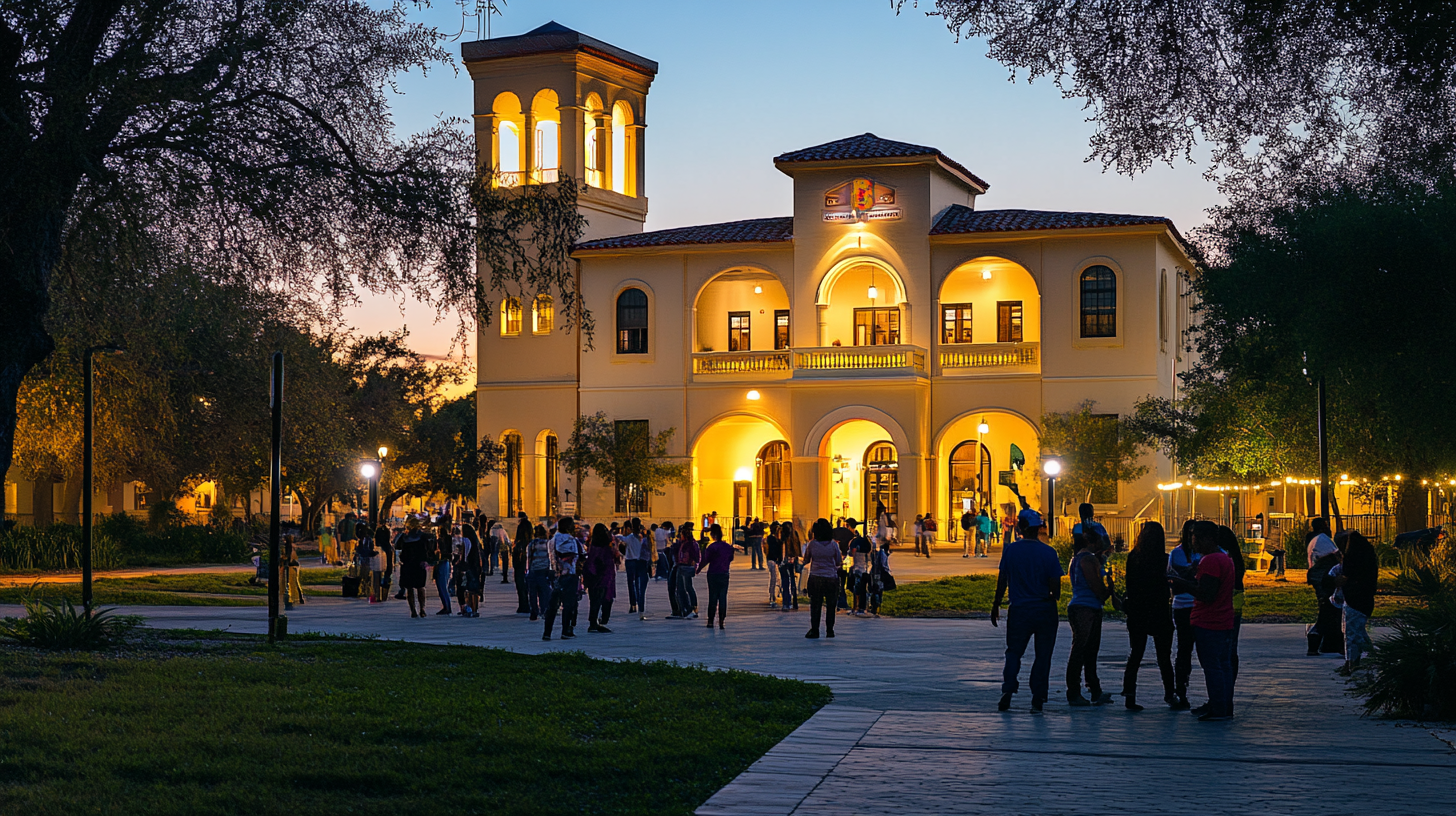Community Convenes at McAllen Library to Discuss School Voucher Bill
Community members gathered at the McAllen Public Library to discuss House Bill 3, focused on education savings programs. The meeting featured perspectives from state representatives and policy experts, emphasizing the importance of community awareness.
Breaking Down the Proposal
As the RGV faces multiple challenges, such as economic disparities and educational needs, House Bill 3 presents a potential turning point for local education systems. This legislative proposal seeks to create education savings accounts (ESAs) that parents can use to fund their children’s education in private or home-based schooling settings. The goal is to provide greater flexibility and opportunities in educational choices for families in Texas, including the Rio Grande Valley.
The bill has already passed in the Senate and is currently pending in the Public Education Committee. If passed into law, the bill would establish financial accounts for parents, allowing them to use these funds for various educational expenses, including tuition and instructional materials.
Community Engagement and Diverse Perspectives
LUPE, along with UnidosUS, spearheaded the town hall meeting that took place at the McAllen Public Library. The event aimed to foster discussion about the potential changes that House Bill 3 could bring to local educational systems. Guests in attendance represented a broad spectrum of perspectives, including educators, parents, and local policymakers.
Eric Holguin, the Texas State Director of UnidosUS, stressed the necessity of keeping the community informed. “We should be informing our community as much as possible. If it is not on a big scale, then maybe in people’s households, having local talks at people’s dinner tables on this issue,” Holguin stated.
Local Impact: Strengthening Education in the Valley
The implications of House Bill 3 could be significant for the South Texas region, particularly for Valley residents who have long advocated for diversified educational opportunities. Proponents believe the bill could enhance parental choice, reduce educational inequities, and challenge public schools to perform better.
Jennifer Garcia, a McAllen ISD teacher, attended the meeting and voiced her concerns, stating, “While I understand the desire for choices, there’s a need to ensure public schools aren’t left behind. They serve the majority of our children and deserve adequate resources to thrive.”
Some community members worry that education savings accounts might divert essential funding away from public schools.
“It’s important to have options,” said Maria Ramos, a mother of three and resident of Weslaco. “However, those options shouldn’t come at the expense of public education which needs all the support it can get.”
Connecting with Ongoing Educational Efforts
This legislative move comes amid broader discussions about educational reform in Texas. For many Valley residents, the opportunity to voice opinions reflects a positive step toward involving more stakeholders in decisions affecting local schools. It also aligns with existing efforts by local organizations to engage community members actively.
Past initiatives, like the RGV Education Initiative, have shown the positive effect that community involvement can have on local schools. By continuing to engage in dialogue, stakeholders hope to refine solutions that address both immediate educational needs and long-term goals for students.
Looking Ahead: Possible Future Developments
While House Bill 3’s fate remains undecided, its potential to reshape the educational landscape of the RGV is undeniable. Should the bill pass, it’s expected that parents and educators will play a crucial role in its implementation and ongoing assessment.
Community members are encouraged to stay informed about developments surrounding this bill and to participate actively in discussions on its impact.
Resources for Further Information
To remain engaged, Valley residents can attend future town halls hosted by LUPE and UnidosUS. Online resources and informational sessions are expected to be available for those seeking more details or wishing to express their views. The community’s continued involvement will be critical in ensuring that any educational changes remain aligned with local needs and values.
For more information on upcoming events and resources, residents can contact their local educational offices or visit related websites managed by civic organizations invested in local education reform.
In conclusion, the discussions surrounding House Bill 3 highlight a critical moment for the RGV, where community interest and local impact will shape the future of education in South Texas. As Valley residents navigate this legislative proposal, their collective input will remain vital to achieving a balanced and equitable approach to educational reform.







